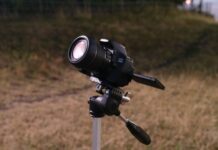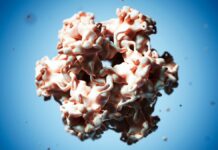Amyotrophic lateral sclerosis (ALS), often referred to as Lou Gehrig’s disease, has long been perceived as a condition primarily affecting older men. However, the reality is that young women are also diagnosed with this devastating neurodegenerative disorder, a fact often overlooked by both patients and medical professionals. A new support group, Her A.L.S. Story, sheds light on these experiences, offering a space where women grapple not only with the physical limitations imposed by ALS but also with the emotional isolation and unique challenges they face in navigating this “old man’s disease” at a young age.
The annual retreat of Her A.L.S. Story brings together women diagnosed in their 20s and early 30s, forging connections amidst shared experiences often absent from traditional support groups dominated by older men. The gathering highlights the stark reality these women confront: ALS robs them of fundamental abilities like walking, talking, and even breathing. Their suitcases aren’t just filled with clothing; they also carry essential medical equipment like BiPAP machines for respiratory assistance, feeding tubes, mobility aids, medication, and experimental treatments—a stark contrast to the typical travel needs of their peers.
For many, this retreat represents an opportunity to shed the burden of constantly explaining their circumstances to others who lack understanding. Here, “it’s easier to say, ‘It’s easier if I stay home,’” says Ms. Brous, reflecting the isolation often experienced by young women with ALS. The ability to simply be, without constant accommodations or pitying glances, is a welcome reprieve.
“They get me,” Frida Hansson said of the others in the group.
She likes the rapport among the women. A similar group she connected with in Sweden had been laser-focused on finding a cure for A.L.S., to the point where “I think they’ve stopped enjoying the life they have now,” she said.“The attitude here,” Ms. Hansson said, “is, ‘Screw this, where’s my drink?’”
While traditional support groups often center on practicalities like sharing news with grandchildren or early retirement—topics largely irrelevant to these women—Her A.L.S. Story addresses their very different concerns.
Leah Stavenhagen, who founded the group in 2021 after her own diagnosis at 30, emphasizes the need to navigate everyday challenges unique to young women living with ALS. From finding stylish footwear compatible with foot braces to dealing with menstruation and intimacy, these are realities often ignored by broader support systems.
Dark humor becomes a coping mechanism, helping them maintain control over their narrative amidst overwhelming circumstances. Jokes about “celebrating” small victories like avoiding accidents contribute to the group’s sense of solidarity and shared resilience.
The retreat itself offers moments of joy and normalcy that become precious in the face of such rapid deterioration. Floating beach wheelchairs allow access to the ocean, while hair stylists and makeup artists provide a chance for pampering and connection. A drag show, honoring another young woman with ALS who was passionate about the art form, becomes a poignant celebration of life and identity amidst loss.
The tattoo Ms. Hansson receives, an ampersand symbolizing duality—being both ill and seeking joy—perfectly encapsulates the women’s mission: acknowledging their reality while refusing to surrender to its limitations.
While the average age of diagnosis for ALS remains around 55, with a predominance of male patients, the experiences of these young women highlight the crucial need for greater awareness and support tailored to their unique struggles. Their story serves as a poignant reminder that even within a devastating illness, there is room for community, humor, and a fierce determination to live life on their own terms.

































